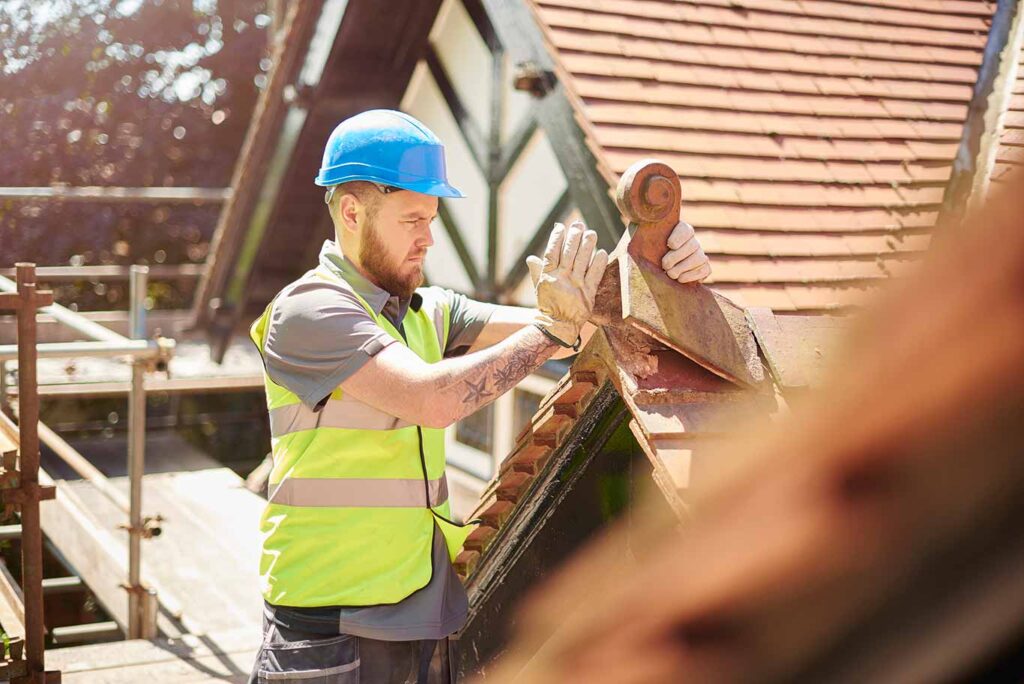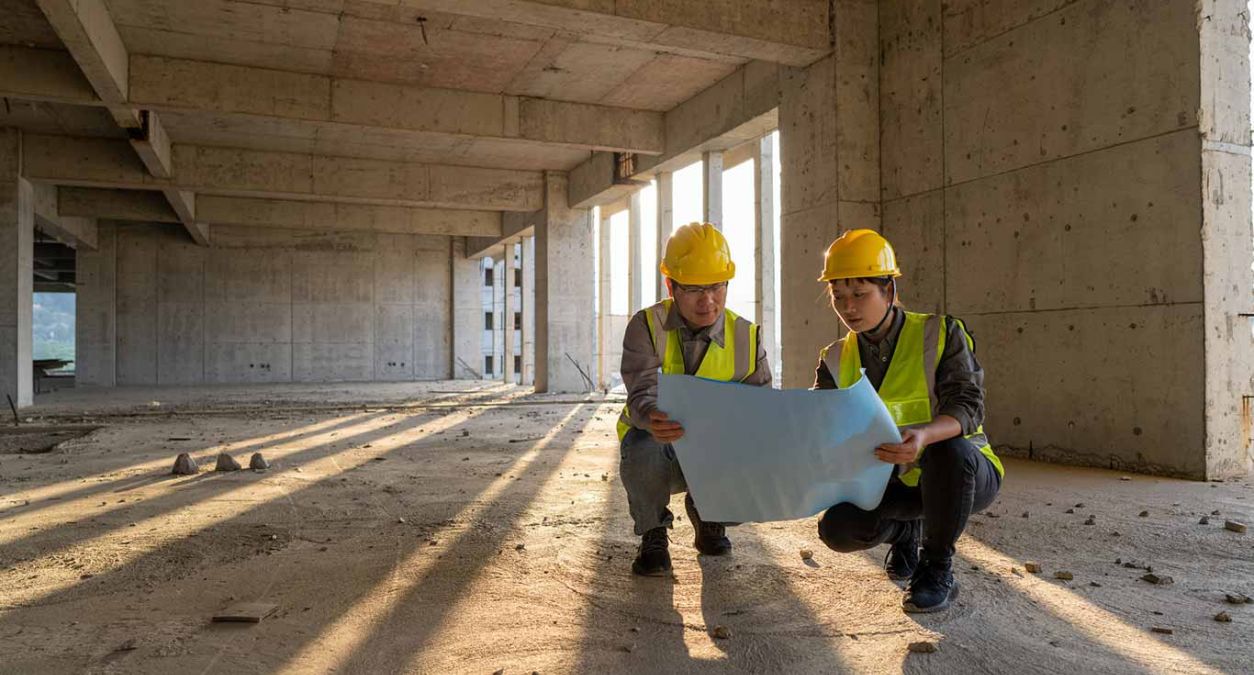Table of contents
Table of contents
The construction industry places a lot of emphasis on the safety, competence, and professionalism of its workforce. At the heart of ensuring these standards is the Construction Skills Certification Scheme (CSCS) and the CSCS card.
This card serves as proof of each worker’s commitment to upholding stringent health and safety practices on construction sites. It helps tradespeople to demonstrate that they have the necessary knowledge and training to enter and work on construction sites with confidence and compliance. There are various things to know about the CSCS card, including who it applies to, the various types of card and what each one requires, and the steps involved in application and renewal.
Whether you’re an industry professional or starting out in your construction career, obtaining and retaining your CSCS card will serve as testament to your skills and dedication. It also helps those in charge to bring in the right teams and maintain order on-site.
In this comprehensive guide, we’ll take you through everything from understanding the significance of the different CSCS card types to navigating the application process. We’ll also answer common queries on topics such as costs and renewals.
What is a CSCS card?

The CSCS (Construction Skills Certification Scheme) card is an important accreditation in the UK construction industry; as a nationally recognised qualification, it’s highly esteemed. The card is crucial for professionals requiring access to construction sites, as it verifies that they possess the requisite knowledge and skills to maintain a secure working environment. The certification plays a pivotal role in enhancing overall safety standards within the construction field.
The primary purpose of the CSCS card, therefore, is to ensure a standardised level of competence in health and safety practices across the construction industry.
Who needs a CSCS card?
The CSCS card is necessary for many people working in various roles within the construction industry, but not everyone. It isn’t a legal obligation to have one, but most contractors deem it a standard requirement. It helps to ensure that the right people are being hired for the job and that they can demonstrate the necessary skills, qualifications, and training for their specific job functions.
The CSCS card is designed for a range of tradespeople, including labourers, skilled workers, supervisors, and managers. Eligibility criteria will vary depending on the specific card type and the level of expertise required for different roles. You can read more about this later in the article.
Who doesn’t need a CSCS card?
Not everyone in the construction industry requires a CSCS card. If you’re not carrying out construction-related work on a site, you won’t need a card. Neither will you need one if you’re on a work placement lasting for less than 30 days.
Specific exceptions include site visitors, delivery drivers, and certain management roles. While some may not need a CSCS card, they’ll still need to adhere to site-specific safety regulations.
What CSCS card do I need?

CSCS offers a variety of cards, all tailored to different levels of expertise and job roles. Each card type signifies a distinct level of competency.
The type of CSCS card you need will be determined by your profession and experience within the construction industry. There are thirteen different cards and you’ll need to have the right one, otherwise you won’t be able to work on-site.
The types of CSCS card are:
- Academically Qualified Person – this is for those who have specific qualifications in construction-related subjects. They include degrees, HNCs, CIOB Certificates and some NEBOSH diplomas and certificates. You’ll need to renew it every five years.
- Apprentice – this one is free of charge as it’s for people undertaking recognised apprenticeships. For that reason, this one can’t be renewened; it will be valid for four and a half years. Once you’ve completed your apprenticeship, you should apply for one of the skilled cards.
- Blue Skilled Worker – this is for workers who’ve completed one of the following:
- NVQ/SVQ level two
- SVQ at SVQF level five
- An apprenticeship, e.g. an employers-sponsored apprenticeship, City and Guilds Craft Certificate (CGLI) or a CSCS-Approved Apprenticeship Standard.
- Experienced Technical, Supervisor or Manager – this is for anyone holding one of these titles and possessing at least a year of experience in the role, within the last three years. You’ll need to be registered to complete an approved, construction-related Technical, Supervisory or Management (TSM) NVQ or SVQ level three, or SVQ at SCQF level 6 or higher. It’s valid for three years and can’t be renewed after this.
- Experienced Worker – this is for workers who have at least a year of experience, within the last three years. You’ll also need registration to obtain an approved construction-related NVQ/SVQ level two, or SVQ at SCQF level five or higher. It’s valid for a year and can’t be renewed after this time.
- Gold Skilled Worker – this is for anyone who has completed a construction-related NVQ/SVQ level three, or SVQ at SCQF level six. You should also have an approved apprenticeship, as well as an employer-sponsored apprenticeship in which you achieved a City and Guilds of London Institute Advanced Craft Certificate. It’s valid for five years.
- Industry Placement – this is for anyone who needs a work placement for 30 days or longer. It’s valid for three years, after which time it can’t be renewed. You should be working towards a construction-related qualification or training programme requiring the completion of T-Levels or Trainee Skills Development Programmes, or similar.
- Labourer – this is for anyone working in labourer roles, rather than anyone in skilled positions. It’s valid for five years only; after this time you’ll have to apply for a new card, rather than renewing it. You’ll need to pass the CITB health, safety and environment test for operatives and hold one of the listed certificates.
- Manager – the Manager card is for those at the relevant level of seniority, as well as people in technical jobs. It’s valid for five years once you’ve passed the CITB Managers and Professionals Health, Safety and Environment test. You’ll need to have gained:
- a relevant Construction Management/Technical related NVQ/SVQ level four, five, six or seven
- an SVQ at SCQF level 10 or 11, in a Construction Management/Technical-related qualification
- Professionally Qualified Person – this card is for members of certain CSCS-approved professional bodies, so you’ll need to provide evidence of a current membership. It’s valid for five years and can’t be renewed, so you’ll need to get a new one once it expires. You’ll also need to pass the CITB Managers and Professionals Health, Safety and Environment Test, or the CIC Health and Safety Test.
- Provisional – this temporary card is for people in their probationary period of employment. It’s only valid for six months and can’t be renewed. You’ll need to obtain or register for a construction-related qualification before it expires, then you can apply for a card from one of the other categories that fits your specialism.
- Supervisory – this is for workers in supervisor and technical occupations, as long as you’ve been awarded a construction-related Supervisory/Technical NVQ or SVQ Level three or four. It’s valid for five years, once you’ve passed the Specialists CITB Health, Safety and Environment Test.
- Trainee – if you’re registered to undertake a construction-related qualification (either vocational, academic or professional), you’ll need this card. It’s valid for five years; after this time, it can’t be renewed as you’ll be expected to have qualified. You must also have passed the operative-level CITB Health, Safety and Environment test.
The CSCS Card Finder tool, on the official CSCS website, contains the full details for each card. This is a valuable resource for identifying your most suitable card, helping you make informed decisions about your certification needs.
Cost of CSCS card
There is a flat rate of £36 for obtaining a CSCS card (with the exception of the apprentice card). There’s an additional cost of £22.50 for taking the required CITB health, safety and environment test.
Can I get my CSCS card online?
While the initial stages of the CSCS card application process can be completed online, obtaining the card often involves a combination of online and offline steps. Applicants typically fill out the initial forms and submit documentation online. However, additional verification processes may require in-person visits or the submission of physical documents by post.
How to apply for a CSCS card
If you’re wondering how to get a CSCS card after passing the test related to your work or training, here are the steps to follow:
- Go to the official CSCS website to apply for the corresponding CSCS card; this can also be completed through postal submission, if you prefer.
- Submit your test results, proof of qualifications, and a recent passport-sized photo.
- Pay your fee.
Timely and accurate submission of required documents is crucial to ensure a smooth processing of the application. You can submit scanned copies of qualifications.
How to renew the CSCS Card
The renewal process will be different for each CSCS card, but they’re typically valid for a duration of between one and five years. To renew a CSCS card, you must usually retake the relevant health and safety test, providing updated information on your qualifications and work experience. The renewal process can be conveniently completed online, allowing you to show your continued commitment to maintaining a high standard of health and safety awareness within the construction industry.
You’ll need to make sure you renew your card before the deadline, if it is eligible for renewal (otherwise, you’ll need to apply for the next card of relevance). This is essential so that you can continue to access places of work and comply with industry standards. If you fail to renew your CSCS card, you may be denied access to construction sites, hindering your ability to work in the industry.
How to get a blue CSCS card without a NVQ
If you don’t have an NVQ, a valid equivalent such as an apprenticeship will be accepted. Getting a Blue Skilled Worker CSCS card without an NVQ may also be possible for some people with the endorsement of their employer. In such cases, a recommendation from the employer may be required, stating the applicant’s competence in their specific role.
Additionally, completion of a recognised apprenticeship or other relevant qualifications may be accepted as an alternative to an NVQ. You can review the specific requirements for your line of work on the official CSCS website, working with your employer to meet all necessary criteria.
Get builders insurance with Protectivity
Health and safety is of utmost importance in the construction industry. This is why it’s essential to take out suitable tradesman liability insurance for you and your business. There are a range of inherent risks associated with construction sites, so the right policy will help give you financial protection against accidents, property damage, and third-party injuries. Clients often require proof of insurance before agreeing to contracts, so this will ensure that you can run your business smoothly and professionally, assuring those you work with that potential liabilities will be covered.
Protectivity’s builders insurance has various benefits, including public liability with up to £5 million of cover. This is designed for claims that may be brought against you, due to accidental injuries to clients or damage to their belongings. It offers cover for compensation claims and other related costs. If you employ staff, you can also opt for employers’ liability. Should one of your workers become injured on the job, resulting in financial loss, you’ll be covered up to the total of £10 million in compensation. You can also choose products liability for protection, in the event that you’re sued due to an accident involving third-party goods. Lastly, there’s optional commercial legal protection, which gives you to access a legal helpline and offers cover for a range of specific business issues. These may include breaches of restrictive covenants, defence of legal rights, personal injury or contract disputes.
Find out more and get an online quote tailored to your specific needs.
Get Builders Insurance from Protectivity
*Disclaimer – This blog has been created as general information and should not be taken as advice. Make sure you have the correct level of insurance for your requirements and always review policy documentation. Information is factually accurate at the time of publishing but may have become out of date.
Last updated by

















